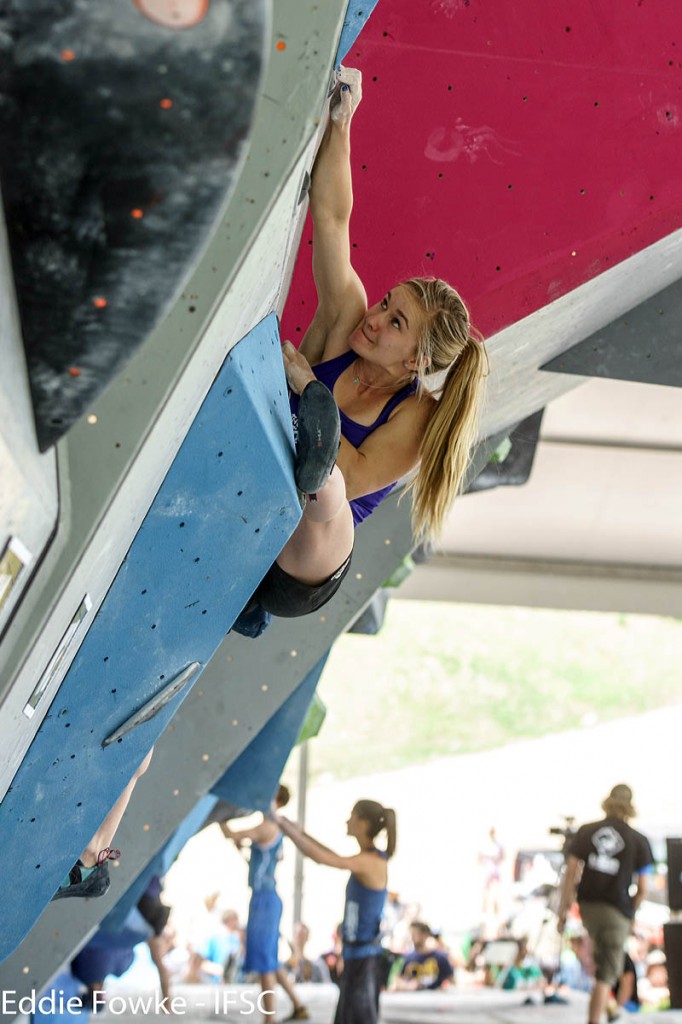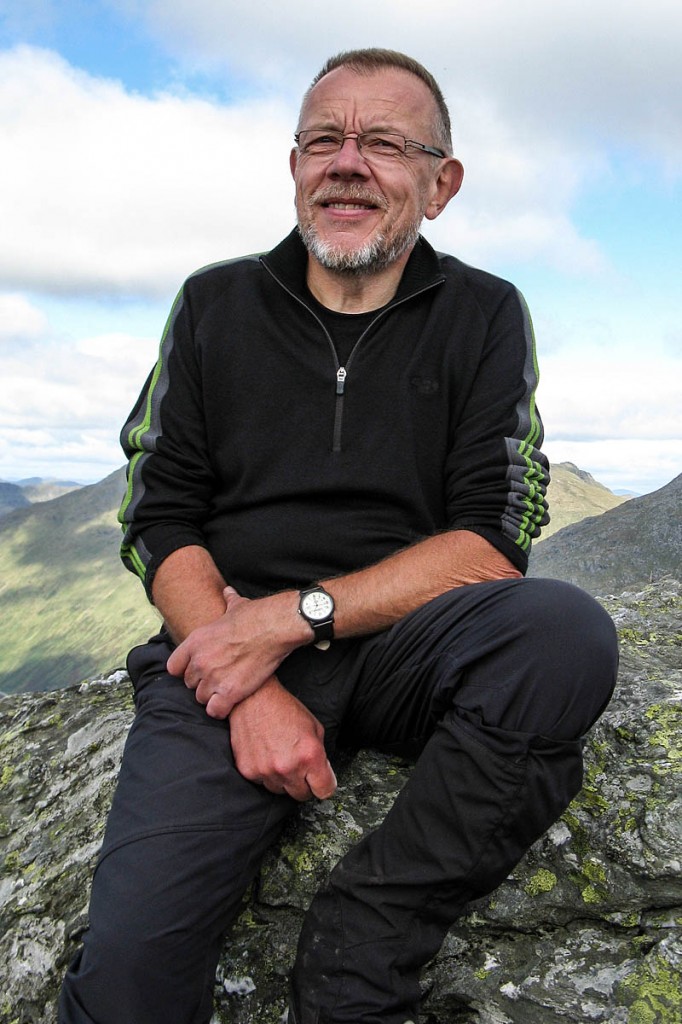Climbing will become an Olympic sport, the movement’s bosses have announced.
A much anticipated announcement in Rio de Janeiro by the International Olympic Committee on Wednesday evening confirmed the go-ahead for sport climbing to be included in the 2020 Tokyo games.
It comes after Climb Britain, formerly the British Mountaineering Council, and Mountaineering Scotland threw their weight behind a concerted campaign for Olympic inclusion by the International Federation of Sport Climbing.
Team GB climbers will be among 20 men and 20 women from across the globe, who will each need to compete in three specific disciplines: lead, speed and bouldering.
Nick Colton, deputy chief officer of Climb Britain, said: “‘Faster, Higher, Stronger’ was the Olympic motto proposed by Pierre de Coubertin when the modern Olympics were first created in 1894.
“And climbing is the embodiment of, and the only sport which fully features all parts of, that phrase.
“Inclusion in the Olympics will bring climbing, with all its mental and physical health benefits, to the attention of a huge number of people worldwide, especially young people, inspiring them to get involved in this exciting, and wonderfully multi-faceted activity.
“These days, climbing is accessible to all. It’s good for developing strength, flexibility and analytical skills.
“And as a competitive sport, events can be held in spectacular venues for breathtaking shows, inciting intense emotions in the spectators.
“It also represents the only basic human movement not yet included in the Olympic Games; sport climbing brings the missing vertical dimension to the world’s most prestigious sporting event.”
David Gibson, chief executive of Mountaineering Scotland, which until recently was known as the Mountaineering Council of Scotland, said: “This fantastic development will be a real boost for our young talented climbers, their coaches and parents who are dedicated to the sport.
“Like them, we’re proud that young Scottish climbers have regularly gained podium places in international competitions as members of the GB team.
“We feel we’re well placed to compete internationally especially as the Olympic competition will place a premium on excelling at three different disciplines.
“It’s going to be an exciting challenge for climbers and their coaches in the years to come, and will inspire even more young people to get involved in the future.”
Lead climbing is done on a long route, with roped protection, clipping into quickdraws during a single attempt at the course, with increasing points for progressively higher holds reached.
Speed climbing is again tackled using protection, but the fastest climber to complete the course gains the victory. Practising on the route is allowed.
Bouldering is tackled without ropes on lower routes up to about 5m high, with a succession of problems to successfully climb, and those who take the fewest attempts to reach the top holds gain the points.
Cheshire-born Shauna Coxsey, 23, is the reigning IFSC bouldering world cup champion, clinching the title in Vail, Colorado, in June this year
Londoner Molly Thompson-Smith, 18, is a Team GB captain and the UK’s number-one lead climber when it comes to the ‘senior women’ and ‘junior female’ categories.
The IFSC said the declaration about sport climbing’s Olympic inclusion was the result of a ‘long, hard climb’ to see it recognised.
The IFSC president Marco Scolaris said: “We are so happy that sport climbing will be participating in the games of Tokyo.
“The Olympics have been our dream for quite some time, and now the hard work has finally paid off. We would like to thank the IOC for extending a truly unique opportunity to our sport.”
In September of 2014, the IOC unanimously approved the proposed addition of new events for the 2020 Olympic Games.
After the IFSC and the Japanese Mountaineering Association presented their bid in Tokyo one year later, eight sports were shortlisted.
In June this year, the executive board of the IOC approved a package containing five of these sports to be submitted for approval: baseball-softball, karate, skateboarding, sport climbing and surfing.
Now the IOC has approved all five events for the Tokyo 2020 Olympic Games.
In a statement, the IFSC said: “Sport climbing embodies the core values of the Olympics movement.
“It is an exciting, healthy and affordable sport which can be practised on all five continents. Women and youth are represented, and persons with disabilities participate as well.”
The IFSC will now begin work on the technical aspects of the Olympic climbing event.
Rob Adie, climbing walls and competitions officer at Climb Britain, is confident the British team will be well in contention for medals in four years’ time.
He said: “The GB junior climbers are an incredibly dedicated team and are training hard and doing incredibly well in Europe at the moment with regular top 10 finishes from both the girls and boys in most age categories.
“These guys will be our future potential Olympians and it’s great to see them doing so well at such a young age.
“We will be sending a very strong team to the world championships in China in November so we have high hopes for some good results there, too.”


Margaret
04 August 2016Full acceptance into the world of commercial competition.
Wainwrightwalker
04 August 2016Sport Climbing in the Olympics - almost lost for words
This has has taken the place of squash, a sport which is played by many more players globally and is much more accessible to people from all socio demographic groups.
Watching someone climb a wall, hang by fingertips 1foot off the ground, simply is not an Olympic sport nor exciting for television. Unless random holds are greased.
Watching 2 (or 4) individuals, engage in a context of speed, agility, stamina and deception is excellent to watch and would draw tens of millions of global viewers, rather than a very small niche element of grough readers.
Bob
05 August 2016A representative of Climb Britain has said that, during a consultation period, the organisation wishes to be known for the time being by its former name, the British Mountaineering Council.
Bob Smith
Editor
Brian Downes
05 August 2016Bob's post is great news that BMC are to keep the name for the time being.
With 'sport climbing' being included in the next Olympics surely the time has come for the indoor plastic climbers to break away with their own representative body, leaving BMC to the outdoor climbers and walkers?
Surely it would not be too complicated for both organisations to liase on standards, awards etc.
Margaret
06 August 2016Interesting observations by John Beattie on Radio Scotland, just after 0900, this morning. He described how the UK buy into the expensive sports (sailing, cycling etc.) as that is where Britain has the best chance of medals. Government money and Lottery fund them; almost turning competitors into Civil Servants of sorts.
OudoorsAndy
23 August 2016Sorry Wainwrightwalker, disagree with you there- but i am a climber, (as well as a walker, mountaineer and bushcrafter)- so I see the skill and agility used by the exceptionally talented athletes that specialise in sport climbing, its amazing and pretty griping to watch, (from a non-sport watcher). I find football the MOST tedious thing to watch, as for golf, don't get me started! I guess its what you know and like...
Something was going to replace squash, not saying it should have gone, just saying it was due to go. i can think of a few sports instead...
I watched 5 mins of synchronised swimming the other day, found it boring and thought why was this an olympic sport? Not very accessible, unlike sport climbing or bordering, (indoor). Again, not saying it shouldn't be, just it didn't float my boat and its judged, so bias and human error can creep in to the medals.
I'm for anything that gets people active and double for anything that gets them active outdoors, which climbing will do, (if not for all). I'm happy to hear it in.
Margaret
28 August 2016Over the years it has become apparent that the Olympics and other elite events do not in fact increase general participation in sport; other than temporary interest at the time of the events.